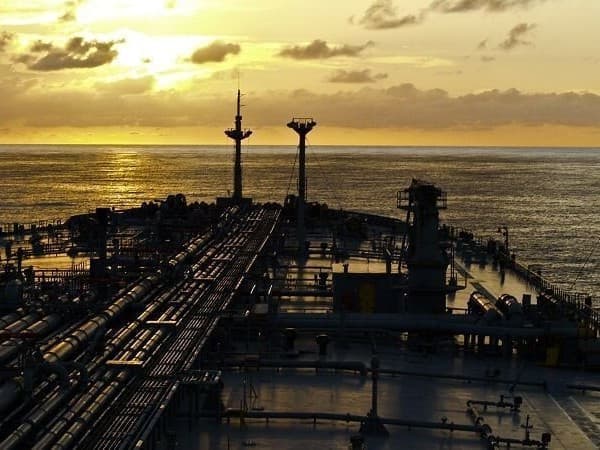Business
Shadow Fleet of Oil Tankers Threatens Market Stability

A growing number of oil tankers, often referred to as a shadow fleet, is accumulating in international waters, storing sanctioned crude from countries such as Russia, Iran, and Venezuela. This situation poses potential risks to the balance of the global oil market, as the large volume of crude oil idling offshore could influence prices significantly, depending on whether these supplies eventually find buyers.
Recent reports indicate that the volume of oil being stored on these tankers is substantial, which raises concerns about its impact on the market. As of October 2023, these vessels have largely remained off the market, but their existence cannot be overlooked. Analysts fear that if the oil makes its way to buyers, it could lead to a sudden shift in pricing dynamics.
Chinese and Indian buyers have notably shifted their purchasing strategies, moving away from Russian oil and instead opting for alternatives from the Middle East and the United States. This trend has emerged amid increasing scrutiny of Russia’s oil shipments abroad, highlighting a critical juncture in the global oil supply chain.
Impact of Sanctions and Supply Changes
The sanctions imposed on Russia by Western nations have created a complex environment for oil trading. Despite attempts to circumvent these restrictions, the growing shadow fleet serves as a reminder of the challenges facing countries trying to sell their oil on the international market. The implications of this situation extend beyond just the immediate financial concerns; they also affect geopolitical relations and energy security.
According to data from Reuters, approximately 120 million barrels of oil are currently stored on these tankers. Many of them are anchored in regions like the Mediterranean and the Indian Ocean, awaiting potential buyers. The risk of these supplies flooding the market could lead to a significant drop in oil prices, exacerbating existing tensions among oil-producing nations.
Future Market Dynamics
Market analysts are closely monitoring the situation as the balance between supply and demand continues to shift. Should the shadow fleet’s stored oil enter the market, it could disrupt pricing structures established in recent months. The shift in purchasing patterns by China and India also suggests a possible long-term trend, as these countries seek to diversify their energy sources and reduce reliance on Russian crude.
The ongoing developments in the global oil market will require careful attention from both industry stakeholders and policymakers. As the situation evolves, the strategies adopted by nations will reflect not only economic interests but also broader geopolitical considerations. The coming weeks will likely be pivotal in determining the future trajectory of oil prices and market stability.
-

 Science1 month ago
Science1 month agoIROS 2025 to Showcase Cutting-Edge Robotics Innovations in China
-

 Science2 weeks ago
Science2 weeks agoUniversity of Hawaiʻi at Mānoa Joins $25.6M AI Initiative for Disaster Monitoring
-

 Lifestyle1 month ago
Lifestyle1 month agoStone Island’s Logo Worn by Extremists Sparks Brand Dilemma
-

 Health1 month ago
Health1 month agoStartup Liberate Bio Secures $31 Million for Next-Gen Therapies
-

 World1 month ago
World1 month agoBravo Company Veterans Honored with Bronze Medals After 56 Years
-

 Politics1 month ago
Politics1 month agoJudge Considers Dismissal of Chelsea Housing Case Citing AI Flaws
-

 Lifestyle1 month ago
Lifestyle1 month agoMary Morgan Jackson Crowned Little Miss National Peanut Festival 2025
-

 Health1 month ago
Health1 month agoTop Hyaluronic Acid Serums for Radiant Skin in 2025
-

 Science1 month ago
Science1 month agoArizona State University Transforms Programming Education Approach
-

 Top Stories1 month ago
Top Stories1 month agoIndonesia Suspends 27,000 Bank Accounts in Online Gambling Crackdown
-

 Sports1 month ago
Sports1 month agoMel Kiper Jr. Reveals Top 25 Prospects for 2026 NFL Draft
-

 Business1 month ago
Business1 month agoTruist Financial Increases Stake in Global X Variable Rate ETF









